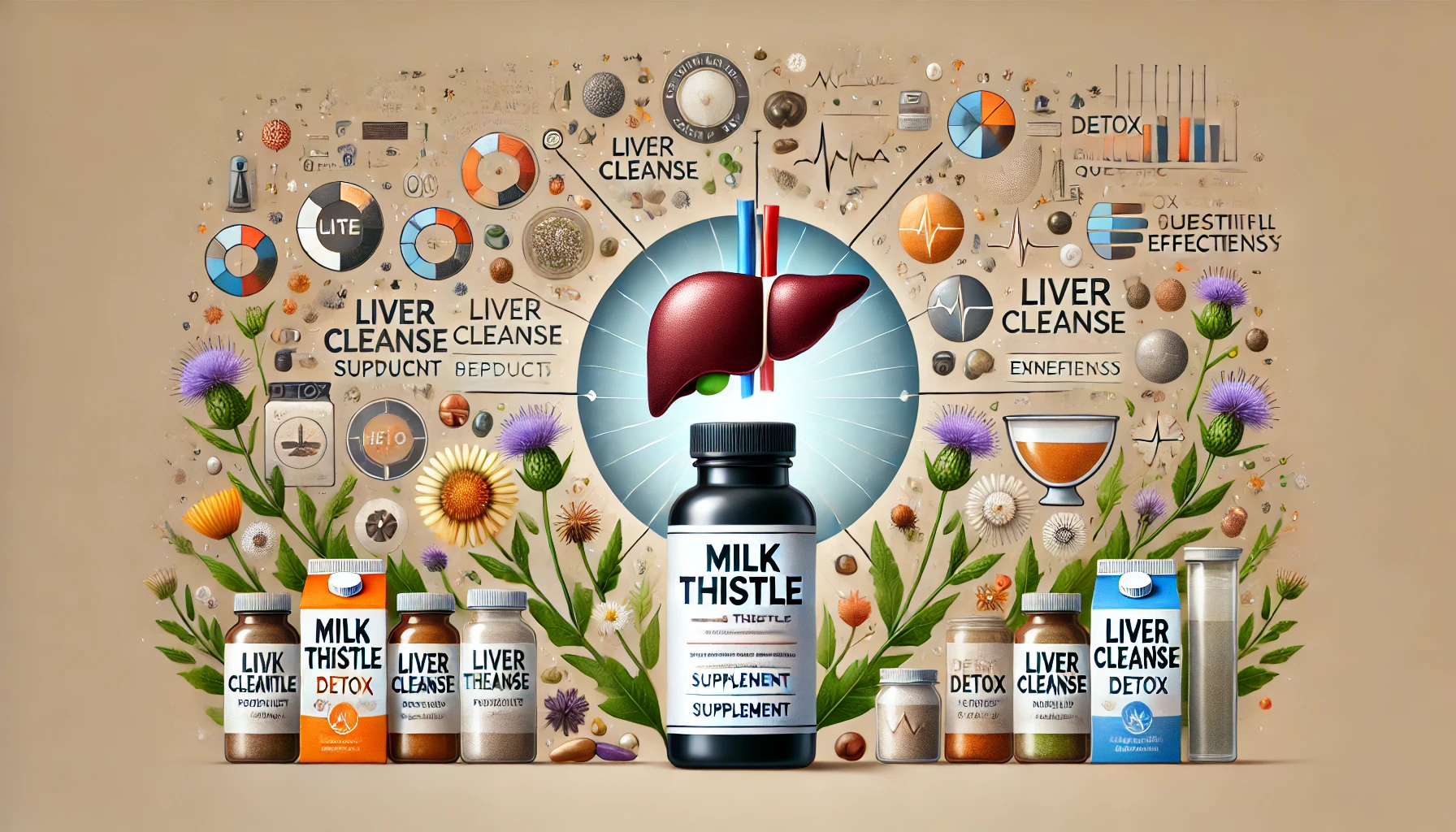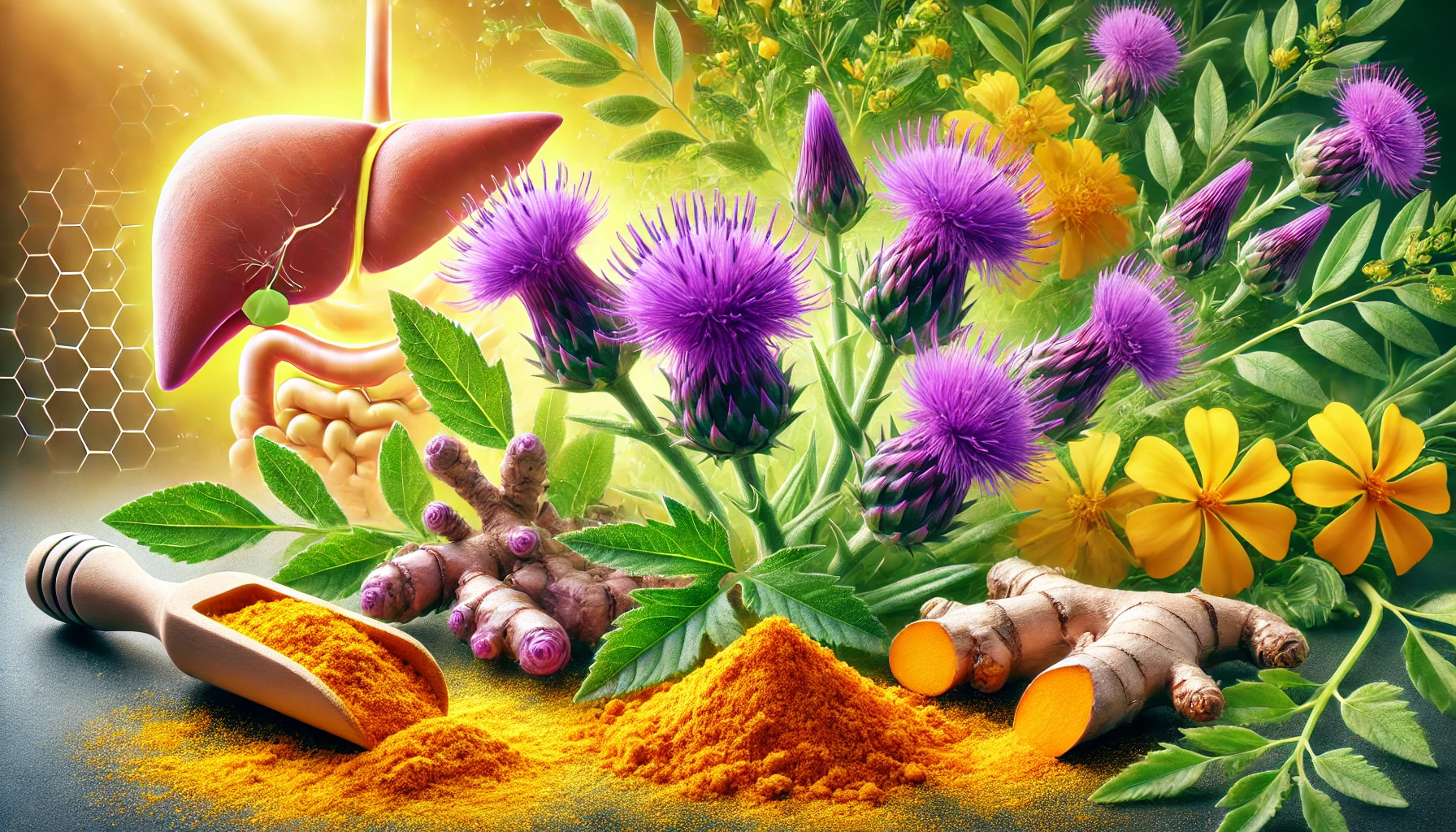Milk thistle, scientifically known as Silybum marianum, is a popular herbal supplement primarily used for liver health. While it has been touted for its benefits, it’s crucial to understand the potential side effects associated with its use. This article will explore the possible side effects of milk thistle, who should avoid it, and what you should consider before incorporating it into your routine.

Common Side Effects of Milk Thistle
Gastrointestinal Issues
- Symptoms: Nausea, diarrhea, bloating, and gas.
- Explanation: Milk thistle can stimulate bile production, which might cause digestive discomfort in some individuals. This is more common in those who are sensitive to herbal supplements.
Summary: “Milk thistle may cause mild gastrointestinal issues, including nausea and diarrhea, particularly in sensitive individuals.”
Allergic Reactions
- Symptoms: Rash, itching, swelling, and breathing difficulties.
- Explanation: People allergic to plants in the Asteraceae/Compositae family (such as ragweed, chrysanthemums, marigolds, and daisies) may also be allergic to milk thistle.
Summary: “Allergic reactions to milk thistle are possible, especially in individuals with allergies to plants in the Asteraceae family.”
Hypoglycemia (Low Blood Sugar)
- Symptoms: Dizziness, weakness, confusion, and sweating.
- Explanation: Milk thistle has been reported to lower blood sugar levels, which can be beneficial for diabetics but risky for those who are already managing low blood sugar.
Summary: “Milk thistle may lower blood sugar levels, which could be harmful for individuals prone to hypoglycemia.”
Headache
Symptoms: Mild to moderate headaches.
Explanation: While not common, some users report headaches when taking milk thistle, likely due to the body’s adjustment to the supplement.
Summary: “Mild headaches may occur in some individuals when taking milk thistle.”
Hormonal Effects
Symptoms: Changes in menstrual cycles, hormone-sensitive conditions.
Explanation: Milk thistle contains phytoestrogens, plant-based compounds that can mimic estrogen in the body. This may affect individuals with hormone-sensitive conditions such as breast cancer, uterine fibroids, or endometriosis.
Summary: “Milk thistle may exert mild estrogenic effects, potentially influencing hormone-sensitive conditions.”
Who Should Avoid Milk Thistle?
Individuals with Allergies to Asteraceae Family
Those allergic to ragweed, chrysanthemums, marigolds, or daisies should avoid milk thistle due to the risk of an allergic reaction.
Pregnant and Breastfeeding Women
The safety of milk thistle during pregnancy and breastfeeding has not been established, so it’s best to avoid it during these times.
People with Hormone-Sensitive Conditions
Those with conditions like breast cancer, uterine fibroids, or endometriosis should consult their healthcare provider before using milk thistle due to its potential estrogenic effects.
Individuals Taking Certain Medications
Milk thistle may interact with medications metabolized by the liver, including certain cancer drugs, cholesterol-lowering drugs, and anticoagulants. Always consult a healthcare provider before starting milk thistle if you’re on medication.
FAQs
Can milk thistle cause liver damage?
Milk thistle is primarily used to support liver health, but in rare cases, high doses or long-term use could potentially lead to liver toxicity. Always follow recommended dosages and consult with a healthcare provider.
Is milk thistle safe for children?
There isn’t enough research to confirm the safety of milk thistle for children, so it’s generally recommended to avoid giving it to children unless advised by a healthcare provider.
Can milk thistle interact with other supplements?
Yes, milk thistle can interact with other supplements, especially those that affect blood sugar or hormone levels. It’s important to discuss all supplements you’re taking with your healthcare provider.
How long can I safely take milk thistle?
The duration for which milk thistle can be safely taken varies. Short-term use is generally considered safe, but long-term effects are not well studied. It’s advisable to take breaks and consult with a healthcare provider.
What should I do if I experience side effects from milk thistle?
If you experience side effects, discontinue use and consult with a healthcare provider. If symptoms are severe, seek immediate medical attention.
The Final Note
Milk thistle is a widely used herbal supplement with potential benefits, particularly for liver health. However, like all supplements, it comes with the possibility of side effects, ranging from mild gastrointestinal issues to more severe allergic reactions. It’s essential to consider these risks and consult a healthcare provider before adding milk thistle to your regimen, especially if you have existing health conditions or are on medication.





